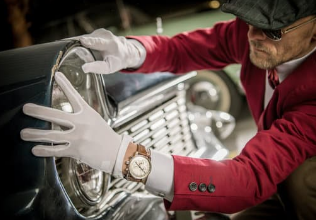
If you’re thinking about selling or trading in your car, one of the most important steps is getting a used car appraisal. This process helps determine how much your vehicle is worth in today’s market. Whether you plan to sell your car privately or trade it in for a new one, understanding the appraisal process can make things easier. It can also ensure that you get the best possible value for your vehicle. In this article, we’ll walk you through how used car appraisals work, what to expect, and how car transport may come into play.
What Is a Used Car Appraisal?
A used car appraisal is an estimate of your car’s market value based on its condition, age, mileage, and other factors. Dealerships, online car-buying platforms, or individual buyers often use appraisals to decide how much they’re willing to pay for your vehicle. Appraisals give you a realistic idea of what to expect during a sale or trade-in, making it easier to plan your next steps.
Why Do You Need a Used Car Appraisal?
Getting an accurate appraisal can benefit both sellers and buyers. If you’re trading in your car at a dealership, the appraisal helps the dealer decide how much they’ll offer you as credit toward your new car purchase. For sellers, an appraisal offers a benchmark so you can price your car fairly.
- For trade-ins: The average trade-in value for used cars in 2024 is about $5,300, though it varies by model, condition, and location.
- For private sales: Cars sold directly to buyers often yield higher prices, with some sellers earning 15-20% more than what a dealer would offer.
Knowing your car’s value helps you avoid getting a low offer and allows you to negotiate with confidence.
How Is a Used Car Appraisal Done?
There are a few ways to get a used car appraisal. Many dealerships offer free appraisals if you’re considering a trade-in, and there are also online tools that provide instant estimates. Here’s how the process usually works:
- Inspection of the car: The appraiser checks your car’s condition, including the interior and exterior. Scratches, dents, or worn-out seats may lower the value.
- Mileage review: Cars with fewer miles tend to have higher values. For example, cars with less than 50,000 miles generally sell for 10-15% more than those with over 100,000 miles.
- Vehicle history report: Appraisers look at reports from services like Carfax to check for accidents or major repairs. Cars with clean histories often get higher offers.
- Market comparison: The appraiser compares your car to similar models currently listed for sale to get an idea of what buyers are willing to pay.
After reviewing these factors, the appraiser provides an estimate of your car’s value. You can then decide whether to accept the offer, negotiate, or explore other selling options.
Trading In Your Car: What to Expect
If you plan to trade in your car, you can apply the appraised value toward the purchase of a new or used vehicle at the dealership. This can save you time since you won’t need to find a private buyer. However, trade-in offers are usually lower than what you might get from a private sale.
- Pros of trading in:
- Convenient and fast
- Reduces paperwork
- You only pay sales tax on the difference between the new car’s price and the trade-in value in many states
- Cons of trading in:
- Offers are often 10-20% lower than private sale prices
- Limited room for negotiation
Dealers make trade-in offers based on the car’s wholesale value, which is the amount they expect to get when they resell it.
Selling Your Car Privately
Selling your car privately can be more profitable, but it also takes more time and effort. You’ll need to list the car online, meet with potential buyers, and handle the paperwork yourself. If you choose this route, a used car appraisal can still help. It gives you a clear starting point for pricing and prevents you from setting your price too low or too high.
When selling privately, make sure to:
- Take good photos of your car to attract buyers
- Be upfront about any issues or repairs needed
- Use a bill of sale to complete the transaction
Some sellers prefer this route because they can earn more money, especially if their car is in good condition.
The Role of Car Transport in the Process
If you find a buyer or dealer far from your location, car transport services can help move your vehicle safely. Car transport companies specialize in shipping cars across the country or even internationally, giving sellers more flexibility.
- Costs of car transport: Shipping a car within the U.S. typically costs between $600 and $1,500, depending on the distance and type of transport (open or enclosed).
- When to use car transport: If the buyer lives far away or you’re relocating, transporting your car may be more practical than driving it yourself.
Using car transport services allows you to sell or trade your vehicle without being limited to local buyers. This can also increase the chances of getting a better offer since you’re not restricted to nearby dealerships.
Final Tips for Getting the Best Value
- Compare offers: Don’t settle for the first appraisal you receive. Get multiple appraisals from different sources to compare offers.
- Do minor repairs: Fixing small issues like scratches or broken lights can improve your car’s value.
- Know the market: Research similar cars in your area to understand what buyers are willing to pay.
Whether you choose to trade in your car or sell it privately, a used car appraisal gives you the knowledge you need to make informed decisions. By understanding your car’s value and exploring your options, you can maximize the return on your vehicle. And if distance is an issue, car transport services make it easier to complete the sale or trade-in process smoothly.
In conclusion, a used car appraisal is a big part of selling or trading your car. It sees to it that you know your vehicle’s worth and helps you negotiate better offers. Whether you take the convenience of trading in your car or the potential profit of a private sale, an appraisal provides clarity. And with car transport services available, location no longer needs to be a barrier to getting the best deal.







